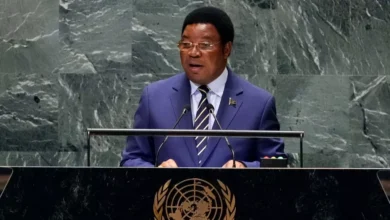
Abdourahamane Tchiani, the head of Niger’s junta, was formally inaugurated as the nation’s president on Wednesday, marking the start of a five-year transitional period under a new charter that replaces the current constitution.
This move effectively undermines attempts by the regional organization to facilitate a swift return to democratic governance following the 2023 coup.
Mahamane Roufai, the secretary-general of the government, announced that the five-year transition period began on Wednesday.
“The transition period is established for sixty months from the date of its enactment. However, this timeframe may be adjusted based on the country’s security conditions, the demands of reform, and the agenda of the Confederation of Sahel States,” he stated.
Tchiani, an experienced military officer, has also been elevated to the rank of army general, reinforcing his power since he led the coup that removed the elected government in June 2023.
By the end of the transition period in 2030, Tchiani will have held power for nearly seven years, reflecting a pattern of prolonged leadership seen in other junta-governed countries in Africa, such as Mali, Guinea, and Burkina Faso.

Initially, the junta proposed a three-year transition after the coup, but this was rejected by ECOWAS, the regional bloc, which considered it provocative and threatened military action.
In retaliation, Niger, along with Mali and Burkina Faso, withdrew from ECOWAS in protest against the harsh sanctions aimed at promoting a return to democracy.
Critics contend that Niger’s junta has curtailed civil liberties and has failed to effectively tackle the jihadi violence that they claimed justified their takeover.



